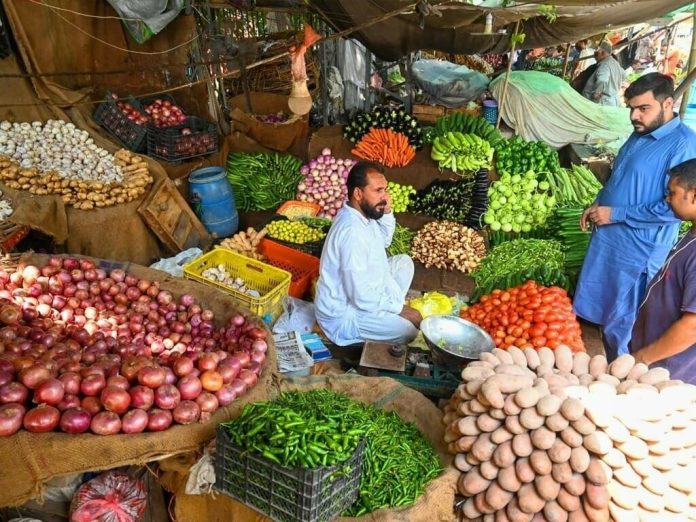Pakistan experienced high weekly inflation of 1.11% for the week ending March 7, driven by a significant increase in food prices ahead of the start of Ramadan, marking the second consecutive week of an upward trend.
Data from the Pakistan Bureau of Statistics (PBS) revealed that the weekly Sensitive Price Indicator (SPI) surged by 32.39% year-on-year compared to the same week last year.
The rise in inflation was attributed to the substantial increase in onion prices, which spiked by 33.86% nationwide to reach Rs238.30 per kg from Rs178.02 in the previous week. Additionally, potato prices increased by 23.81% to Rs69.47 per kg, while tomato prices rose by 16.42% to Rs136.59 per kg. Banana costs also climbed by 7.12% to Rs153.76 per dozen.
Prices of other essential commodities, including liquefied petroleum gas (LPG), eggs, petrol, firewood, beef, mutton, cooked daal, and clothes, also experienced increases ranging up to 4.43%.
Out of the 51 essential commodities covered by the SPI basket, prices of 14 items rose, 14 decreased, and 23 remained unchanged compared to the previous week.
On a year-on-year basis, the SPI surged by 32.39%, primarily due to a 570% increase in gas charges for the first quarter, followed by a significant rise in tomato prices by 176.55%. Other commodities also became more expensive by up to 82% year-on-year.
The anticipation of Ramadan, which is expected to begin on March 12 or 13, and the consequent increase in food prices, especially fruits, may keep inflation on an upward trajectory in the short term. However, forecasts suggest a slowdown in inflation to 20-21% in March due to a high base effect.
In late January, Pakistan’s central bank revised its inflation forecast for FY24 to 23-25%, up from the previous estimate of 20-22% made in July 2023.




